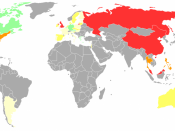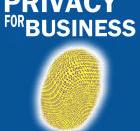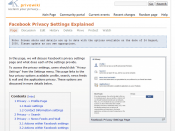Adolescents must not have a right to complete privacy concerning computer activity. Parents need to be aware of everything that is happening in their childÃÂs life. They have to ask the question ÃÂWhat is my child really doing on the computer?ÃÂ 42% of parents do not review the content of what their teenager(s) read and/or type in chat rooms or instant messaging. 95% of parents could not identify common chat room lingo that teenagers use to warn people theyÃÂre chatting with that their parents are watching. Phrases like POS (Parent over Shoulder) and P911 (Parent Alert). Not to mention that nearly three out of 10 (28%) of parents do not know and/or are not certain if their children talk to strangers online. Teens having complete privacy on a computer could lead to serious consequences. Teens must not have a right to complete and absolute privacy regarding activity on their computer.
A child might want to commit suicide and no one would ever know why. Children may be excessively popping pills, drugs and so on, but only anonymously tell people on the internet (Adolescent Substance Abuse Knowledge Base). An adolescent might consider they are ÃÂnot good enough for the worldÃÂ and injure or cut themselves (Battle). A teen might just want to stop the ÃÂpainÃÂ so they would use a method that was more abrupt (Battle). A child might be on the verge of suicide and the parent might assume that they are fine and not even think that they are unhappy because they tell others but not their parents. Parents need to use safeguards to limit which sites their teen can visit, monitor use and limit the time online so that their child would be less likely able to see sites that would get them thinking about self abuse.
Even though adolescents must not have total privacy, a parentÃÂs first reaction must not be to assume the worst. In assuming the worst without consulting the child first, events following become a little out of hand (Covert). Assuming the worst is extremely annoying, especially when the parents will not let their children explain what really happened (Covert). Parents need to ask their child their side of the story, before giving shame or punishment (Morgan). For example, a parent checks their childÃÂsÃÂ e-mail and finds porn, it was most likely spam that they obtained from surfing the net and not purposely e-mailed. Assuming the worst is without doubt not what the guardian must do originally.
Young adults must not have the right to complete privacy, but must be allowed some confidentiality. The guardian must be concerned and watchful, but not paranoid. Paranoia would drive the child insane and the child may try to avoid their parent by leaving the house more often, which would make the situation worse (Kendrick). The guardian may not even be able to investigate as well or often because their child may put passwords on their usernames or change passwords for e-mail and et cetera. (Kendrick). The adolescent would most likely feel violated and would not talk to or respect their guardian because the parent was so paranoid (Kendrick). The parent should not be extremely paranoid, and must provide their teen a little privacy.
Adolescents must not have a right to complete and absolute privacy. A child may want to do something terrible, over dosage, etc. without parentsÃÂ knowledge. The parent needs to discuss with their child their concerns and assumptions. Parent needs to not be too paranoid, and must allow their teen some space. A child not having complete privacy must re-assure parent(s) or inform them and the parent(s) needs to allow a little privacy for the teen while continuing to check on them.
Cited WorksÃÂAdolescent Substance Abuse Knowledge BaseÃÂ. 17 Nov. 2005.http://www.adolescent-substance-abuse.com/.
Battle, Judy Shepps. ÃÂTeenagers and SuicideÃÂ. 28 Nov. 2005. http://www.about-teen-depression.com/teensuicide.html.
Covert, Matt. ÃÂWhat Parents Should Not Assume About Their KidsÃÂ. 28 Nov. 2005.http://www.usaweekend.com/01_issues/010429/010429teen_essays.html.
Kendrick, Carleton. ÃÂSpying On Our KidsÃÂ. 17 Nov. 2005.http://www.familyeducation.com/article/print/0,1303,68-2035,00.html?obj_gra.
Morgan, Nicole. ÃÂWhat do Parents Assume about Their Kids?ÃÂ. 28 Nov. 2005.http://www.usaweekend.com/01_issues/010429/010429teen_essays.html"Parents' Internet Monitoring Study." Net Smartz. 2004. National Center for Missing & Exploited Children and Boys & Girls Clubs of America. 7 Dec. 2005. http://www.netsmartz.org/safety/statistics.htm.





